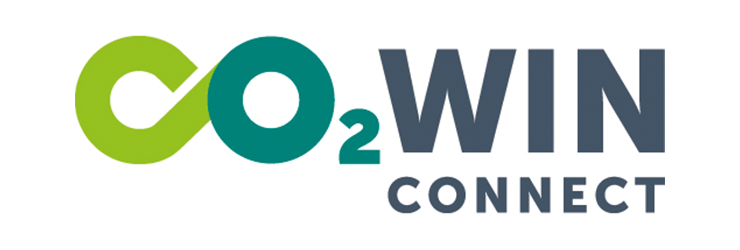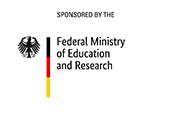CO2-WIN Connect
CO2 as a sustainable carbon source - ways to industrial use (CO2-WIN)

Within the BMBF funding measure " CO2 as a sustainable carbon source - ways to industrial use (CO2-WIN)", research projects that support different parties in the use of CO2 as a raw material in chemical and other applications were funded. This was intended to reduce dependence on imported raw materials on the one hand and reduce greenhouse gas emissions on the other.
Under the direction of DECHEMA, DIN was part of the accompanying networking and transfer project "CO2-WIN Connect" together with the University of Kassel and RIFS Potsdam - Research Institute for Sustainability. The aim of this accompanying project was to achieve better networking between the funded projects. In addition, further stakeholders at national level were involved, and links to European projects, initiatives (SusChem and SPIRE) and networks (CO2Chem) were established. For this purpose, CO2-WIN Connect organized events and bundled the external communication of the BMBF funding measure. In addition, research results were evaluated regarding achievable resource efficiency, emission reduction and economic implementation potentials and limiting factors for the acceptance regarding the use of CO2 were identified.
DIN supported the 12 projects of the funding measure with regard to all questions of standardization.
Project results
DIN SPEC 91457:2023-09 Photocatalysis - Determination of product formation in CO₂ reduction
Initial situation:
- Through photocatalytic cleavage or reduction, products like fuels or basic chemicals can be produced from CO2.
- Need to create comparability of the measurements of the various catalysts with regard to their performance.
Development:
- Initiation by Prof. Dr. Jennifer Strunk.
- Bilingual development to maximize impact.
- First DIN standard for photocatalysis in which photocatalysis is used for synthesis and not primarily for the degradation of pollutants.
Expected impact:
- Comparability of the measurements of the different catalysts regarding their performance. Sources of error in the measurement setup and implementation should be identified and avoided.
DIN SPEC 91458:2023-09 Utilization of carbon dioxide - Terms
Initial situation:
- Multitude of terms, designations and acronyms relating to CO2 use with different interpretations and uses among stakeholders.
Development:
- Initiated by Dipl.-Ing. Dennis Krämer. Many iteration loops while defining the 118 terms.
- Bilingual development to maximize the impact.
- Lots of feedback during the public commenting phase.
- Subdivision of the document: Framework terms/basics, CO2, energy and raw material sources, product synthesis/processes, product and life cycle assessment/life cycle/process evaluation.
Expected outcome:
- Facilitation of cross-national and cross-disciplinary communication between research institutions, companies and users as well as in political and public discourse.
DIN SPEC 91508:2025-04 Requirements for the Life Cycle Assessment of CCU- and CCS-Technologies
Initial situation:
- ISO 14000 series contains requirements for environmental management systems with little flexibility for different applications.
Development:
- Initiated by Prof. Dr. Volker Sick in his role as Director of the Global CO2 Initiative.
- Bilingual development to maximize impact.
- Techno-Economic Assessment & Life Cycle Assessment Guidelines for CO2 Utilization (Version 2.0) serves as reference for the development of the document.
Expected outcome:
- The document can serve as a template for transnational standardization activities of the new CEN/TC 474 " CO2 capture, transportation, utilization, storage (CCUS) and carbon accounting".
- The document will support the establishment of CCU and CCS technologies by promoting their compatibility with LCA recommendations.
For more information see project website: CO2-utilization
Project duration
01/2020 - 06/2023, extended until 11/2024
Project coordinator
- Projektträger Jülich (PtJ)
Project partners
- DECHEMA Society for Chemical Engineering and Biotechnology
- University of Kassel - Center for Environmental Systems Research
- IASS Potsdam - Institute for Advanced Sustainability Studies
Project funding
CO2-WIN Connect was funded by Germany’s Federal Ministry of Education and Research (BMBF) as part of the funding announcement: Research for Sustainable Development - FONA under the funding code: 033RC016D and the coordination of the PtJ.
